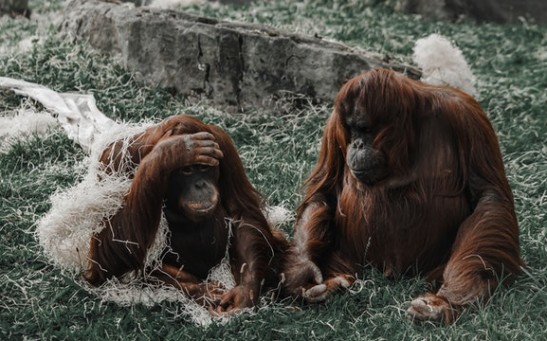primates

Humans With Tails? How Will the World Look Like if Human Ancestors Had Kept It?

Social Conventions in Baboons Naturally Emerge Like in Humans, Study Shows

Primate Human Issa Found With Climbing Abilities Similar to Ape But Walked on Feet
DNA Reveals Brain Differences Between Humans and Chimpanzees; Researchers Grow the 2 Cell Types to Compare

Did Humans Have Tails? Mysterious Genetic Mutation Allegedly Made It Disappear Based on 25-Million-Year-Old Fossil
Some Primates Carrying Their Baby's Cadaver Suggests That It May Be a Form of Grieving

Wild Cockatoos Seen Using Utensils From Trees Like Primates, Opens Possibilities in Evolution of Intelligence
Chimpanzee Bonds: Strong Ties Among Male Chimps Lead Them to Successfully Find Their Mate, Sire Offspring

Female Vampire Bats Found Grooming, Sharing Food With Each Other; Opposite the Behavior Seen in Some Primates

Dunbar’s Theory Limiting Humans with 150 Friends, Stable Relationships Questioned

Research Reveals Monkeys Eavesdrop Too Like Humans

Primates Could Probably Talk If They Exerted Any Effort—Biologists
Study Reveals a Surprising Similarity Between Bonobos and Humans

Lemurs’ Hibernation May Be the Answer To Cryogenic Sleep For Space Travel
Most Popular

How Technology Is Changing the Real Estate Industry?

Study Reveals High Turnover in Scientific Research Careers: What This Means for Future Scientists

How a Plant-Based Diet Can Protect Against Breast Cancer: Insights from Nutrition Research

Practical Steps to Future-Proof Your Money to Create Financial Security






